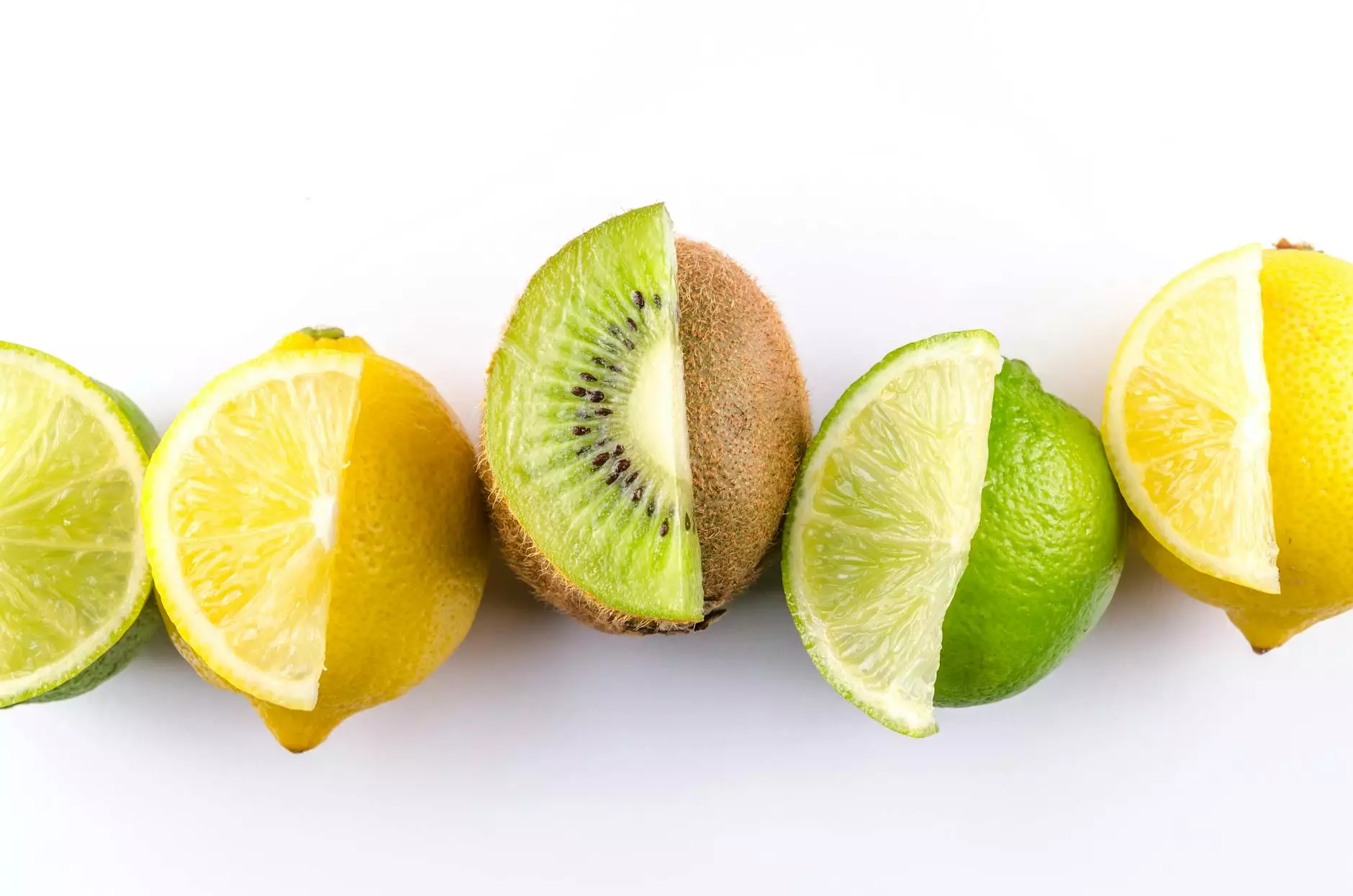Unlocking the Benefits of Fruits for Parkinson's Disease: A Comprehensive Guide

In the evolving landscape of healthcare and nutritional science, understanding the relationship between diet and neurological disorders is becoming increasingly vital. Among the many dietary considerations, fruits for Parkinson's disease have garnered significant attention due to their rich nutritional profiles and potential neuroprotective properties. This comprehensive guide aims to delve into how specific fruits can contribute to managing Parkinson’s symptoms, support brain health, and improve overall quality of life.
Understanding Parkinson's Disease and the Role of Nutrition
Parkinson's disease is a progressive neurodegenerative disorder primarily affecting motor function, characterized by tremors, rigidity, bradykinesia, and postural instability. It results from the loss of dopamine-producing neurons in the substantia nigra region of the brain. While genetics and environmental factors play roles, lifestyle and nutritional choices are increasingly recognized as modifiable elements that can influence disease progression and symptom severity.
Nutrition plays a critical role in maintaining neurological health, with certain nutrients exhibiting neuroprotective, anti-inflammatory, and antioxidant properties. Incorporating a variety of fruits into the diet can deliver essential vitamins, minerals, and phytochemicals that support brain function and mitigate oxidative stress, which is implicated in Parkinson's progression.
The Significance of Fruits in Managing Parkinson's Disease
Fruits for Parkinson's disease offer numerous benefits, including:
- Rich source of antioxidants to combat oxidative stress
- Anti-inflammatory compounds that may reduce neuronal inflammation
- High levels of vitamins and minerals supporting overall neurological health
- Promotion of gut health, which has emerging links to neurological well-being
- Natural sources of energy to combat fatigue common in Parkinson’s patients
Top Fruits for Parkinson’s Disease: Nutritional Powerhouses for Brain Health
Integrating specific fruits into the diet can maximize the neuroprotective potential. The following fruits stand out due to their exceptional nutrient profiles and research-backed benefits:
1. Berries: Blueberries, Strawberries, and Raspberries
Berries are often labeled as the ultimate neuroprotective fruits owing to their high concentrations of flavonoids, anthocyanins, and antioxidants. Studies suggest that these compounds can cross the blood-brain barrier, reduce inflammation, and improve neuronal signaling.
- Blueberries: Rich in anthocyanins, they have been linked with improved motor function and reduced cognitive decline in neurodegenerative disease models.
- Strawberries: Contain high levels of vitamin C and ellagic acid, which help neutralize free radicals and support the immune system.
- Raspberries: Offer high dietary fiber and antioxidants that promote gut health, indirectly supporting brain health.
2. Avocados
Although often considered a vegetable, avocados are a fruit and an excellent source of monounsaturated fats, vitamin E, and antioxidants like lutein. These nutrients support membrane integrity in neurons and may help slow down neurodegeneration.
Research indicates that vitamin E plays a role in delaying the progression of Parkinson’s disease, making avocados a valuable addition to a neuroprotective diet.
3. Apples
Apples contain quercetin, a potent flavonoid known for its anti-inflammatory and antioxidant activities. Regular apple consumption has been linked with reduced risk of neurodegenerative conditions, including Parkinson's. The dietary fiber in apples also benefits gut microbiota, which has emerging connections to neurological health.
4. Pomegranates
Pomegranates are loaded with punicalagins and anthocyanins that target oxidative stress and inflammation. Clinical research suggests pomegranate extract may improve motor function and neuronal survival in experimental models.
5. Bananas
Bananas are a rich source of vitamin B6 and dopamine precursors. Importantly, they provide a quick energy source and help alleviate fatigue, an often overlooked symptom in Parkinson’s patients.
6. Citrus Fruits: Oranges, Lemons, Grapefruits
Citrus fruits are abundant in vitamin C, which has antioxidant properties that can scavenge free radicals and reduce oxidative damage in neurons. They also support immune health and reduce inflammation, which are crucial in disease management.
Integrating Fruits into a Parkinson-Friendly Diet
Incorporating these fruits into daily meals can significantly benefit individuals with Parkinson’s disease. Here are effective strategies:
- Consume a variety of berries daily, adding them to cereals, smoothies, or yogurt.
- Include avocado slices in salads or spread as a healthy dip.
- Eat apples as a snack or incorporate them into baking recipes for added fiber and nutrients.
- Add pomegranate seeds to salads, oatmeal, or enjoy pomegranate juice in moderation.
- Use bananas in smoothies, cereals, or as a natural sweetener in baking.
- Enjoy citrus fruits as fresh slices, in fruit salads, or as freshly squeezed juice.
Additional Lifestyle and Dietary Considerations for Parkinson’s Patients
While consuming nutrient-rich fruits is crucial, it’s equally important to adopt a comprehensive approach that includes:
- Balanced diet: Incorporate vegetables, lean proteins, whole grains, and healthy fats alongside fruits.
- Regular physical activity: Exercise improves mobility, balance, and brain health.
- Maintaining hydration: Adequate water intake supports metabolic and neurological functions.
- Monitoring medication interactions: Some fruits may interfere with Parkinson’s medications; consult healthcare providers for personalized advice.
- Managing stress: Practice mindfulness, meditation, or yoga to reduce neurological inflammation.
Future Perspectives: Research and Innovations in Nutritional Support for Parkinson’s
Research continues to uncover how specific dietary patterns and functional foods can influence the course of Parkinson's disease. Emerging studies are exploring the benefits of polyphenol-rich fruits and plant-based compounds that may slow disease progression. Furthermore, innovations such as nutraceuticals derived from fruit extracts are gaining attention for their potential to offer targeted neuroprotection.
Personalized nutrition approaches, integrating genetic testing and metabolic profiling, are becoming promising fields to tailor dietary interventions, including the strategic use of fruits, for optimal neurological support in Parkinson’s patients.
The Role of Businesses Like ElifeForum in Supporting Health and Cultural Engagement
Businesses such as elifeforum.com serve as valuable platforms where the intersection of nutrition, art, and social engagement enriches community well-being. Their diverse categories like Restaurants and Art Galleries foster cultural appreciation and social connectivity, which are essential components of holistic health strategies. Promoting knowledge about nutritious diets, including the role of fruits for Parkinson's disease, aligns with their mission to enhance lives through meaningful experiences and informed choices.
Conclusion: Embracing a Fruit-Focused Approach for Neurological Wellness
Integrating a wide variety of fruits into your diet offers an accessible, enjoyable, and scientifically supported way to support neurological health in Parkinson's disease. While it’s essential to adopt a comprehensive approach that includes medical treatment, lifestyle modifications, and social engagement, establishing a daily routine with nutrient-rich fruits can be a powerful step toward improved health and well-being.
As research advances, our understanding of how fruits for Parkinson's disease can be harnessed to slow progression and improve life quality will undoubtedly deepen. Embracing this knowledge empowers individuals and communities to make informed dietary choices and foster a healthy, vibrant life despite the challenges of neurodegenerative diseases.









